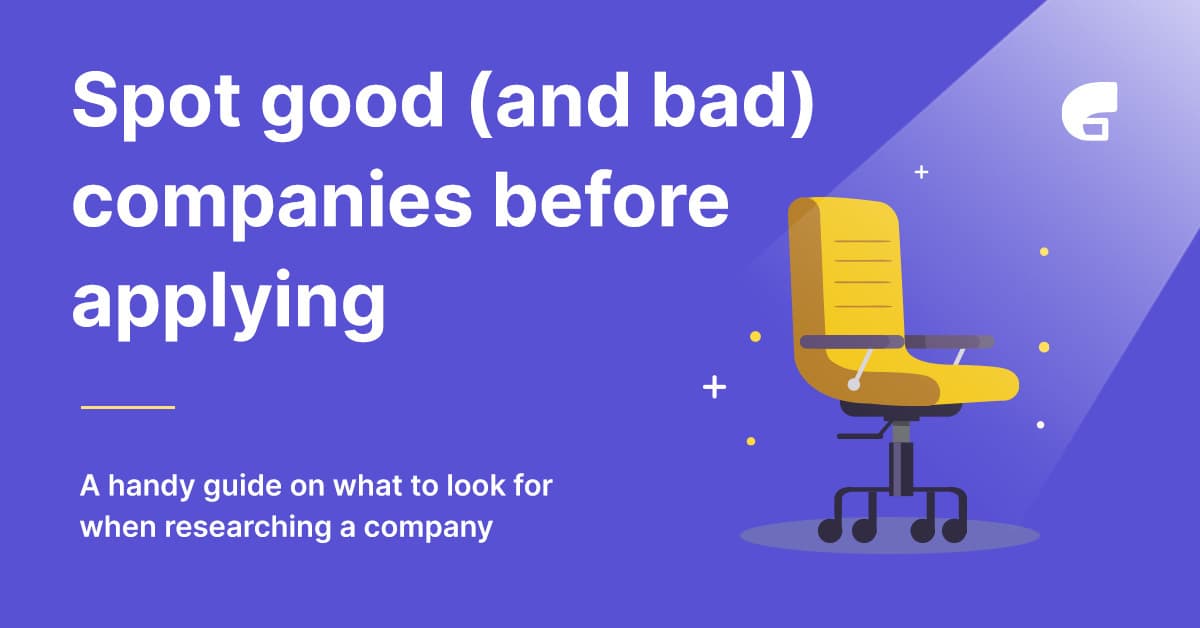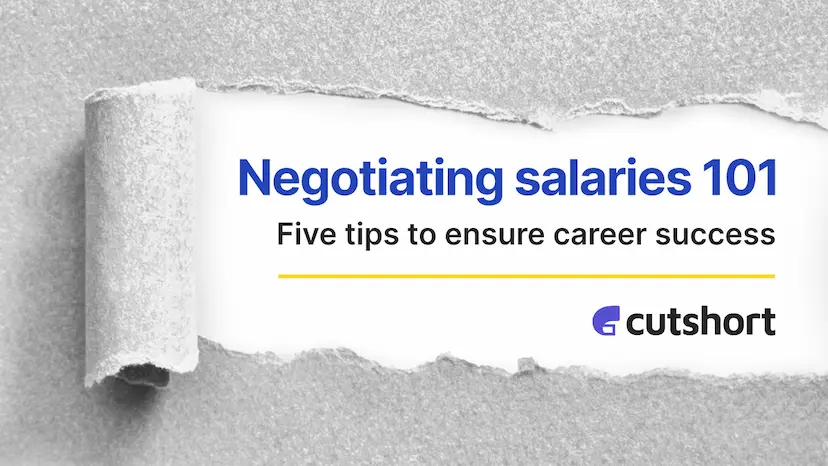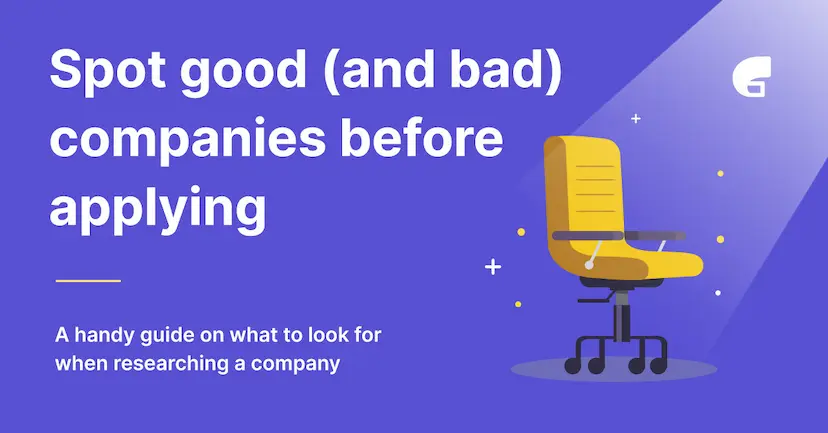A handy guide on what to look for while researching a company.
Let’s face it. Even the best of us can become victims of brilliant marketing. It’s usually alright when it’s a new toothpaste brand you got talked into but picking the wrong company could prove to be much more costly.
Most candidates believe that through the recruitment process, they will get to learn more about the company and with each stage, there will be better clarity on the kind of work, future colleagues, perks, and culture they can expect. However, this is both an inefficient and ineffective way to go about it.
It’s inefficient because it wastes a lot of the candidate’s as well as the company’s time only for either side to realize that it’s not going to be a perfect fit much later in the hiring process. It’s also ineffective because most companies are now investing in employer branding and hence, the marketing and outer appearances could mislead candidates especially when they aren’t looking closely enough at the company itself.
So it’s clear you need to be evaluating companies much before the interviews begin. In fact, it’s recommended that you filter your dream companies much before you start applying and thus, only apply and invest in the organizations where you wouldn’t think twice before signing the offer letter.
In fact, the joy of landing that offer can quickly dissipate when you’re witness to the inner workings of your new company and find out it’s not quite what you expected. In fact, research suggests that 33% of new hires tend to quit within the first six months.
It’s a waste of resources and time for the recruiter, sure, and also for the candidate who could’ve found a better, long-term fit – perhaps with just a little more research.
That’s why we’ve put together this handy guide on what to look for when researching a company and how to evaluate it without necessarily spending hours interviewing with them.
Median Tenure
While most companies prefer candidates who have held on to their jobs for longer than usual, it’s also a good metric for candidates to determine if a company is conducive to a long-term career.
If you use LinkedIn premium, you can figure it out quite easily by just going to the company’s page and it’ll provide you with the details of the median tenure of its employees. Anything below 1 year and you should know that the company has a relatively high churn of employees and must be looked at more closely.
Similarly, companies with a median tenure of anywhere between 1.9 to 4 years are decent bets when it comes to staying long-term.
You could also confirm this by checking current and previous employees’ (mid-senior level) LinkedIn profiles. Are there a lot of them who’ve been with the company for a while? Say at least two years? Do you see an inordinate number of new employees who have been there less than six months? Even worse, do you see a lot of ex-employees who have quite within a year? That’s a red flag.
Median tenure is an important indicator because it not only suggests whether the company is able to retain its people but could also signal the overall work environment and culture. A lot of people would stay in their current jobs if they have a strong sense of belonging even in the face of higher compensation elsewhere.
Hiring growth
LinkedIn premium is a gold mine of data – candidates can also view information about employee distribution and headcount growth by function.
There was a time when a higher number of employees were a marker of success. And it still can be. It could mean the company is growing and hiring people for newer functions.
However, it could also be a case of throwing people at a problem. The best way to assess this is by looking at the numbers and then speaking to current employees about what these numbers really mean. For instance, if you see a company hiring very aggressively, make sure to check whether their hiring is cyclical – service companies often hire people during business upticks and tend to lay them off during downturns.
Founder and leadership profile
It’s not all about the company’s own marketing – one must look beyond and see whether its leadership and founders are aligned with your values too. A decent place to start here is to look at their LinkedIn/Twitter. Ignore the company-related updates here and focus on their other activities such as shares/comments on other people’s posts. This will give you an insight as to what the leader really cares about.
Wouldn’t it be odd if your potential boss had no social presence at all?
Team social activity
Do current team members invest in their personal brand? Do they write about the industry and interact with their peers regularly? If yes, it’s a great indicator of your future company’s health and culture. IT shows that employees are passionate about the field they’re in and proud of the work they do. Conversely, and obviously, if you find employees bad-mouthing the company on their social channels, steer clear.
Another thing to note here is to check if employees are actively applying to other companies (open-to-work badges are pretty common on LinkedIn nowadays).
Glassdoor and other independent reviews
It’s one of the basic steps but it never hurts to look deeply into independent boards such as Glassdoor reviews. Do the bad reviews outnumber the good? Moreover, do the better ones seem almost templatized? This could be a sign that the company is desperately trying to raise its rating – not by fixing the root cause of the issues, but by covering them up superficially.
Quora and Reddit threads are also good places to find unfiltered reviews about your potential employer. Take employee opinions seriously, and don’t be afraid to bring them up in your interview.
Funding
If a funded company hasn’t raised money for a significant period of time – say two years – it could mean one of two things. Either it’s been profitable for a while and it doesn’t need the money, or it desperately needs some cash but investors aren’t willing to part with the funds – perhaps their product is now outdated, or they no longer have a clear path to a return or investment.
If your prospective company hasn’t raised money in some time, it’ll be worth your while to do a little digging and understand why. This could also be brought up directly with the company to eliminate any misunderstandings or concerns.
Conclusion
A new job is a commitment that could possibly change the course of your career. A little research and looking beyond the obvious should save you and your future employer a lot of time, trouble, and money.
However, this list isn’t exhaustive by any measure and we would love to expand it. Tell us what are the things you look for when researching a company and we’ll publish an updated guide in a couple of weeks!





